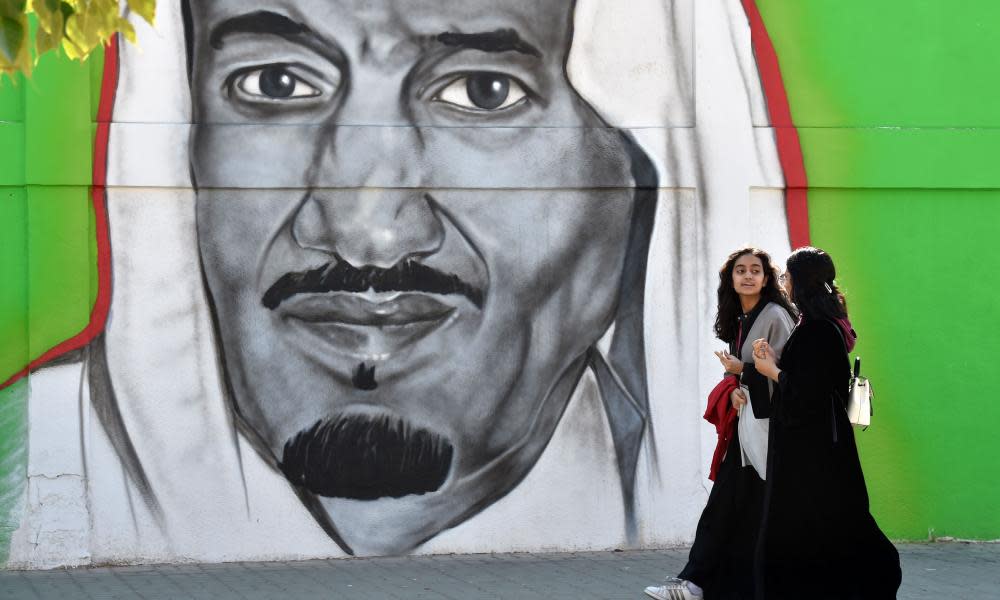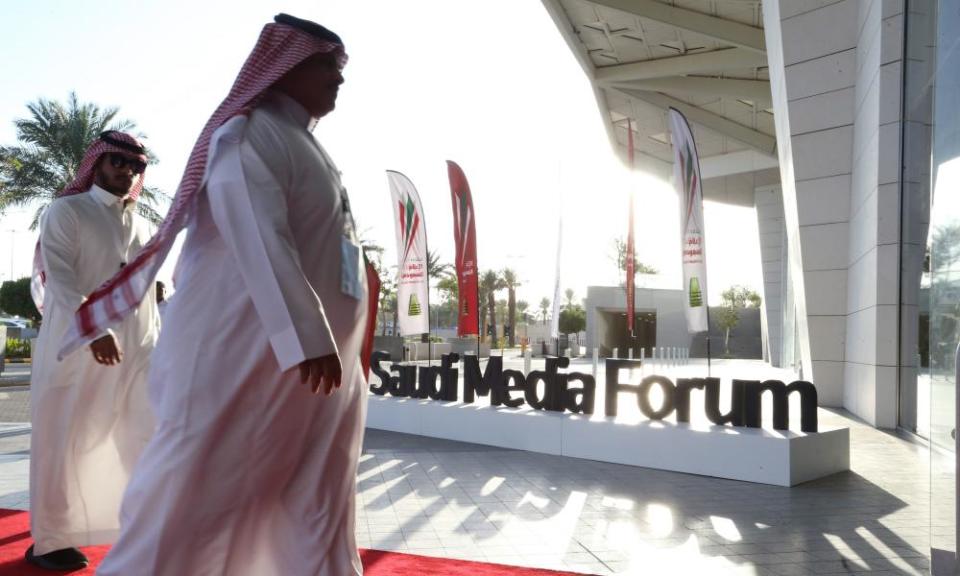‘It’s a free country now’: Saudi Arabia touts new openness

Rayan and Maha sat on the ground smoking, their schoolbags beside them and their smartphones blaring pop songs. School was in full session but they were at the mall, and they didn’t seem to care who knew it.
Both girls were uncovered, their abayas held together by only a few buttons, as women dressed more conservatively in full black robes and niqabs breezed by carrying babies and shopping bags. Men in traditional thobes walked past without turning their heads, but the pair caught the eye of a Brazilian man wearing shorts and two full-sleeve tattoos, who stopped to try to talk to them.
“I can do what I want,” said Maha, 16. “It’s a free country now, don’t you know?”
For the two teenagers, truanting appeared to be more an act of youthful defiance than an expression of new-found freedom. But in Saudi Arabia these days, that two girls are willing to publicly rebel also testifies to a wider change in the kingdom.
“It’s true I wouldn’t have done this a while ago,” said Rayan, 17. “Because the [religious police] would have found me. Now I’m not worried about them or anyone else, except maybe my dad.”
Two years into a reform programme aimed at opening up a rigid society to a sceptical world, what to wear and how to behave seem very much up for grabs. Strict dress codes have been modified for locals and abandoned for foreigners, laws restricting women’s movements have been rescinded, child custody has been made more equitable and segregation of men and women has been set aside.
The Saudi capital, a bastion of cultural austerity and oppression for nearly four decades, is now accepting allcomers. Wrestling troupes, global performers, homegrown singers, and boxers – including the world heavyweight champion Andy Ruiz Jr, who on Saturday faces Britain’s Anthony Joshua in a title rematch in Diriyah – are among a host of entertainers lured by the message that what was once forbidden is now welcome.

The bare torsos of Joshua and Ruiz adorn posters across Riyadh promoting the kingdom’s first world heavyweight boxing match. Saudi Arabia has taken a leaf from the playbook of its neighbour Qatar, which has built its brand partly by luring global competitions including the 2022 football World Cup.
So keen are leaders to tout the new openness, they held a conference during the week to discuss challenges facing the media, inviting international press including the Guardian. The gruesome murder of Jamal Khashoggi in Istanbul 14 months ago by Saudi state agents was not on the agenda, nor widespread restrictions on freedom of expression, which have long made Saudi Arabia one of the most opaque and difficult places in the world for journalists
The cultural transformation, rolled out steadily since late 2017, has been dizzying, and largely embraced by urban elites in Riyadh and the second city, Jeddah, where much of what is now being sanctioned had been enjoyed in private for decades. But beyond the city limits, and even in the outer suburbs, the pace of change – and the fact it is happening at all – has caused resentment, anger and even shame.
“I never thought I’d see this in my lifetime,” said Monira Salman Quaratah, who opened a coffee shop, Cafe Barbera, in a Riyadh suburb three years ago and on Thursday hosted a women’s empowerment forum that drew more than 15 local and foreign women to speak to a new foundation, Saudi Women Stories.
“If I had tried to get such a gathering together back then, they would have shut it down,” she said. “But now this is a forum for everyone. And I couldn’t be happier. Sometimes I get a customer who complains about the music, or mixing, but I just tell them things have changed.”
Among the group was a life coach, Bayan al-Hazimi, 29, who spends one week a month studying in London and the rest of her time working on a fledgling practice that she hopes will become a career.
“People didn’t understand the difference between therapy and coaching at first,” she said. “But once you explain it to them, they get it. And I think it will be the same with people who don’t like the cultural changes. When they see people coming here and respecting them and our customs, they soften. The conservatives need to learn how to coexist.”
Many in Riyadh and more in the country’s smaller communities seem disinclined to do that. In the eyes of some observers, rural conservatives in particular may never fully embrace the changes set in motion by the heir to the throne, Mohammed bin Salman.

Cultural reforms were one plank of an attempt to re-engineer most aspects Saudi life – an ossified economy, implacable opposition to most entertainment and a rejection of anything depicting the pre-Islamic era.
The push has dismantled a long-held accommodation that allowed the country’s leaders to run the affairs of state while hardline clerics defined and enforced the national character. In its place, an Arab nationalist police state is emerging, underpinned by the heir to an absolute monarchy who has ruthlessly consolidated his power base while eliminating dissent.
“This isn’t just a difficult bridge to cross,” said one observer who has spent much of the past two decades immersed in conservative Saudi society. “For many, it’s actually shameful. And shame is a very powerful notion in this part of the world. They are saying this is against the values of the kingdom and of the faith, that this is an imposition which pays no heed to values or customs.
“The other thing is, they won’t dare speak against what is happening, because they have seen the price to pay for doing so. There is a culture of fear in Saudi Arabia now that wasn’t there before the reforms. The pact is: you can have your freedoms, but in return you lose your tongue.”
Fear of cultural erosion remains strong within conservative ranks and is amplified by the western concerts and festivals now regularly passing through Riyadh. “If the cultural aspects were more indigenous,” there would be less pushback, said a second observer. “The conservatives need to be handled carefully here.”
For Hazimi, the life coach, something has clearly changed among her conservative family. “I am now regularly going outside my comfort zone,” she said. “I would not have been comfortable to express myself like this before, and nor would anyone else I know.
“One of my [female] friends is now an archery champion here. Others are finding their voices. Our generation needs to accept that the children who come next will be raised differently.”

 Yahoo News
Yahoo News 
